Harris, Reed & Seiferth
|
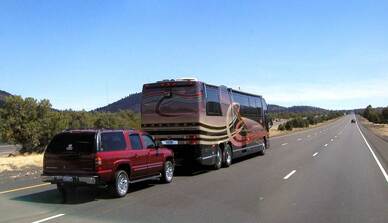 When traveling in an RV, you may find it helpful to have a vehicle available for a run to the store or a short excursion without having to pack up all your gear and maneuver your rig through crowded city streets. Many experienced RV owners tow a car or truck for the convenience of having a more compact vehicle on hand. Here are the different options for towing and tips on how to do so safely. Four Wheels Down (Toading, Dinghy Towing or Flat Towing) This is the most popular method for towing a vehicle behind an RV, which involves attaching a tow bar and letting your vehicle roll behind the RV on its own four tires. Benefits of this method include minimal, if any, impact on the gas mileage, handling, and wear and tear of your RV; the equipment needed to attach a car by a tow bar is cheaper than purchasing a dolly or flatbed trailer; and you don’t need a separate trailer license. However, there are a few drawbacks. Not all vehicles are equipped to be towed on four wheels so check the owner’s manual, manufacturer’s guidelines and mechanical capabilities of your vehicle before investing in this option. In addition, though this shouldn’t add miles to your car’s odometer, it will cause wear on the car tires. Two Wheels Down (Dolly Towing) For this method of towing, a dolly attaches to the back of your RV and the vehicle rides with two tires up on the dolly and the other two tires down on the road. Any front-wheel-drive vehicle can be towed this way. Plus, you won’t damage your car’s transmission or increase mileage while it’s in motion. The downsides of this method is that a quality dolly trailer is expensive; you may need a separate license for the dolly; it could be difficult to store at a campsite; it puts wear on the two car tires that are down; and it adds weight to the capacity of your RV. If you’re thinking about choosing this option, calculate what the overall weight will be (before purchasing the dolly) to ensure your RV will be able to handle it. Four Wheels Up (Flatbed Trailer) The third option for towing a vehicle is with all wheels up on a flatbed trailer that’s attached to the RV. Any vehicle can go on a flatbed trailer as long as it can be secured and as long as the trailer is built to handle the weight of your specific vehicle. Before purchasing a trailer, decide what vehicle you’re going to bring with when traveling and then compare trailer options based on the amount of weight they can haul. Similar to dolly towing, the drive shaft is off the ground so you won’t rack up mileage. Also, with this method, your tires won’t endure any wear and tear. Disadvantages of four wheels up is you’ll have the extra cost of the trailer; you may run into storage issues at campgrounds; and the weight of a flatbed trailer will use up a lot of the weight your RV can carry. Whichever method you choose, it’s important to take extra precautions when you tow a car behind an RV. Here are some basic safety guidelines to follow:
Source: https://www.foremost.com/learning-center/options-for-towing-a-vehicle-behind-your-rv.asp
0 Comments
 Owning an RV is a wonderful experience – whether you’re a full-timer, a summer traveler or just prefer a weekend getaway, the opportunities for adventure are endless. After all, that’s part of the allure with owning an RV. But, after being in your RV for multiple years, it may need an update! This has drawn many people to renovate their RV DIY style, and if you’re up for the challenge, you can too! Adding some upgrades or changing the interior of your Recreational Vehicle doesn’t mean you need to gut it and start from scratch. There’s many projects you can do that are simple; such as switching out some of the furniture, or adding some décor to make it feel more homey. To help you get started, we put together six customization ideas for your RV if you’re ready for a new and fresh look.
Source: https://www.foremost.com/learning-center/custom-upgrades-to-your-rv.asp 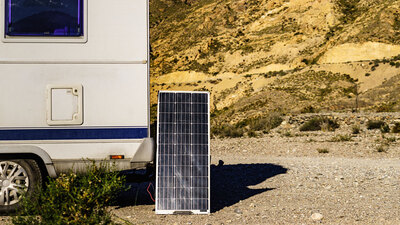 There are many benefits of having solar panels on your RV, and depending on your lifestyle they could save you a TON of money. However, there are also reasons you could argue for why you shouldn’t install panels. If you’re thinking about getting them for your RV but are still on the fence about it, here are some things to consider! Are solar panels worth it?
This depends solely on your lifestyle. If you enjoy spending a majority of time “off-the-grid” or frequent dry camps without power hookups (this is known as “boondocking”), then solar energy may be the way to go. Having solar could open up a lot more possibilities and allow you to explore different spots, rather than just hunting down the next camp with a hookup. Plus - you will certainly see some long-term savings if you compare solar panels to a gas generator. According to experts, you can expect your solar “payback period” to be around five years.1 However, if you are someone that spends a majority of your time at campsites with hookups or you only take big RV trips a few times a year, installing solar panels wouldn’t be practical. You are better off using the camp’s local power system and paying the associated fee. How do solar panels work on an RV? Most people think that solar panels are meant to power an RV – and that’s not entirely true. The purpose for solar power is to recharge your battery bank. Solar panels work the same as a gas generator except it requires no gas, makes no noise and can charge your batteries for a long period of time (as long as the sun is out and shining). According to EnergySage, if you have an 800 W system that’s in direct sunlight for five hours a day, it will produce 4,000 watt-hours (Wh) of energy each day. To put that into perspective, you’ll be able to power small electronic devices like a TV or a microwave, but you won’t be able to run your refrigerator for an entire day. If there isn’t any sunlight for a few days, however, that can pose a problem. It’s a good idea to have a plan B – like a back-up generator. How much do solar panels cost & how many do I need? The price varies with what wattage you would need for your RV, but it’s certainly not cheap! A good list of solar panels specifically designed for RVs, their prices and how many you would need can be found in this article from EnergySage. Can I install solar panels myself? Yes! With the proper tools and parts, you can install them yourself, but it’s not an easy process. If you decide to do it yourself, make sure you do extensive research on the installation equipment you’ll need to run an RV solar setup. If you’re not the handy type, call a professional solar panel installer to do this for you. Overall, if you decide to take this next step in your RV lifestyle, you won’t regret it. Not only will it enhance your camping experience, it’s also great for the environment and will save you big bucks long-term. Happy camping from Foremost Insurance! 1https://news.energysage.com/rv-solar-panels/ Source: https://www.foremost.com/learning-center/solar-panels-for-your-rv.asp 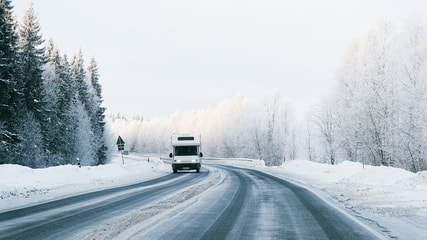 I apologize if you're holding on to your last days of warmth, but winter will be here before you know it! If you travel year-round in an RV and are looking forward to camping in snowy weather, be prepared for poor road conditions. Here are three tips to keep you, your family, and your RV safe during wintertime travel:
Source: https://www.foremost.com/learning-center/three-tips-for-driving-your-RV-in-the-snow.asp
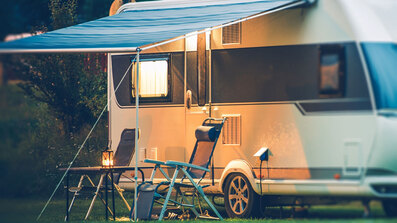 Transitioning from a home where you have roots in one place to a full-time life on the road is a drastic change, but there are many things that draw people to this “nomad” lifestyle. It could be the flexibility, the love of traveling, or maybe you just want to get out of your comfort zone and try something new! Whatever the reason may be, if you’re preparing to be an RV full-timer, kudos for having the courage to embrace this exciting lifestyle change. We know it can be overwhelming to think about the details involved with living full-time in an RV, and your choice to welcome the open road may seem impulsive to others, but that’s okay. Life is short, and who knows … you may end up regretting not doing this sooner! Here are some tips to help you prepare for living in an RV full-time. Become a Minimalist. Adapting a minimalist lifestyle often requires major changes. You’re probably going from a normal-sized home to a roughly 270 square foot space, which forces you to ask: “What do I really need?” To determine this, start by writing down everything you want to bring, then write another list of everything you actually need. This will help you visualize and prioritize your possessions. Bring all the necessities, of course – clothes, toiletries, shoes, cookware, etc. However, you won’t nee d 10 pairs of boots, or the many t-shirts that have been sitting in your drawers for 2+ years, or 20 drinking glasses that you currently have in your kitchen. You may need to make some tough decisions, but take this opportunity to de-clutter your belongings. Make a “take” pile and a “donation” pile. It’s always a good idea, even if you aren’t planning to RV full-time! Go Paperless. Life on the road means you won’t be home to pick up your mail and see if you received any bills. Move all of your bills (cell phone, medical, credit cards, auto insurance, etc.) to automated billing so you don’t need to worry about it. Once you make the switch, you should get all notifications for your bills via email moving forward. Plus, this helps save the environment! Sell or Keep Your Home? This brings us to our next question – will you make the commitment to sell your home and have your RV be your only residence? This depends on how much you plan to travel throughout the year. Also, can you afford to keep your home while traveling? You will still have your mortgage payments, maintenance on the home and other obligations. If you decide to keep your home, there’s always the option of renting it out so you won’t have to worry about any mortgage payments. If you don’t start renting, make sure you have someone regularly stopping by your home to get the mail and take care of any maintenance needed as the seasons go by. If you do decide to sell your home or cancel a lease, you will need to choose a domicile state and receive mail. Getting a domicile means you are choosing a state for your legal residence. This state will be listed on your driver’s license, where you purchase your health insurance, where you can vote and where you will accept mail. (There are lots of mail-forwarding services that will set you up with a street address so you can officially establish residency. This is helpful because a P.O. Box address will not be accepted as your legal residence). The best states for full-time RVer domiciles are Texas, Florida or South Dakota.* People usually choose these states because they are income tax-free! Selling your home will also allow more financial freedom for your RV travels! Get that estate sale ready, or find a storage unit to put all of your furniture in, just in case you ever want a break from the RV life. Determine a Monthly Budget. You may think you’ll be saving a lot of money when you live on the road – but you will be surprised. Since your expenses will be drastically different from when you lived in a home, you need to budget and keep track of everything you spend. Things like campsite fees, eating out frequently, gas and unexpected RV repairs can add up. Once you get a good idea of how much you’re spending each month, you can adjust your budget accordingly. Purchase Full-Time RV Insurance. Since your RV will be your permanent residence, you need a specific type of insurance coverage called “Full-Time RV Insurance.” You will be covered against liabilities, Additional Living Expenses, medical expenses in the case of an accident and more! Contact one of our local agents today to get more information on how you can get covered, so you can enjoy your travels across the U.S., or start an RV quote now! Stay Connected with Family and Friends. Communicate with your friends and family on a regular basis. (They will miss you!) It’s also a good idea to let a few people know your current location and where you’re headed next on a regular basis, just in case of an emergency. To make your loved ones feel like they’re part of your adventure, post pictures frequently on social media or send them via text or email. It will let everyone know you and your companions are safe, and also allows you to stay connected with everyone even when you’re not physically with them. Enjoy Every Minute. Living life on the road is a once-in-a-lifetime experience. You will see amazing things, meet one-of-a-kind people and make the best memories. Don’t take it for granted! With traveling, you will always run into some bumps in the road – but that’s part of the journey. Don’t let it discourage your long-term goals. You’re not tied down to a routine now, so enjoy the freedom and independence that comes with RVing full-time. Stay safe and happy travels from Foremost! Source: https://www.foremost.com/learning-center/a-guide-for-full-time-rv-living.asp
*https://www.moneycrashers.com/rv-living-choose-domicile-state-get-mail/ Helpful steps to storing your RV during the cold months As you get ready to park your RV for the winter after an enjoyable season on the road keep in mind these important storage steps:
Need RV Insurance? Make sure you have insurance coverage specialized for your RV. Check out our RV Insurance coverage options or get a quote. https://www.foremost.com/learning-center/storing-your-rv-for-winter.asp
Summer is officially here, and if you're like me, you can't wait to get on the road and go on some adventures! There's nothing more enjoyable than good company, good food and an open road with endless possibilities.
If you're traveling in an RV, you have the benefit of more convenience! You now have a kitchen, shower, bathrooms and bedrooms. It definitely saves money on hotels, and may save you time on stops along the way too. But, just like any trip, your RV vacation can go sour very quickly if you ignore certain safety precautions and regular maintenance. According to the National Fire Protection Association (NFPA), an estimated 20,000 RV fires happen every year.⚹ That's a scary number to consider. The good news is, most RV fires are preventable! Before you hit the road, read these fire prevention safety tips so you can have a worry-free trip with your family and friends!
⚹ https://www.nps.gov/articles/p52-rv-fire-safety-101.htm Source: https://www.foremost.com/learning-center/fire-safety-for-your-rv.asp Traveling on the road in your Recreational Vehicle can get pricey if you eat out for every meal, but cooking your own meals may require some creativity. While many RVs do have full, functional kitchens, some may not have that option. However, there are other ways to cook your meals in and around your RV safely, even if you don’t have a source of heat.
Here are five unique ways you can enjoy delicious home-cooked meals while you’re on the road!
Source: https://www.foremost.com/learning-center/five-ways-to-cook-while-on-the-road.asp Ah, the RV awning. It's a wonderful feature to have - for looks, for shade - but also one that needs regular maintenance. How many times have you heard your awning creaking in the howling wind when you forgot to lower it? How many times have you heard of somebody else's awning blowing off completely or seen one sagging to the point of no return after a storm?
The key to avoiding damage to your awning is being prepared. Knowing how to handle your awning can save it - and you - from loss in case of a “rainy day.” When to hold it, when to fold it Awnings are a standard part of most motor home and travel trailer equipment today and they can handle the typical everyday wear if they're cared for. Generally, your awning should be secured at its feet, pegged down so it will not flip in the wind. Awning straps are also available to help keep it secured. In terms of weather conditions, a light drizzle or breeze should not be cause for alarm. At the first sign of menacing dark clouds or a whipping wind, however, roll up the awning. The best thing to do is practice rolling your awning on a nice day, so you'll be prepared to do it quickly when a storm really is about to hit. Nobody wants to be caught in the rain, struggling to roll up their awning while lighting abounds. Keeping clean An awning that is rolled up a while will need to be aired out and cleaned as soon as weather clears. This type of maintenance is simple compared to fixing a broken awning or having to replace one altogether. Unroll the awning, rinse with warm water and a mild cleansing solution (you can gently scrub it with a brush or sponge) and then let it dry. This is a good general practice for your awning regardless of whether it's been wet or rolled. Regular accumulation of dirt and other pollutants on a fabric surface can shorten the life of the structure, and quicken the deterioration of the fabric. Periodic cleanings are best in the long run to keep your awning in good condition. Though some losses on the road may be out of your control, your awning shouldn't be one of them. Taking good care of it will help keep you "in the shade." Need RV insurance? In addition to RV awning care, make sure you have insurance coverage specialized for your RV. Check out our RV Insurance coverage options or start a quote. It's important to keep in mind that the life of an RV tire cannot be measured by miles alone, nor can you always rely on tires that "look good."
Given the stop-and-go nature of many RVers, RVs often sit for extended periods of time in-between use. When they are in use, they are often subjected to heavy loads during extreme weather conditions such as high heat. Both situations can lead to tire damage and failure, which can quickly put a damper on any trip — or turn into a dangerous situation. The primary reasons for RV tire deterioration include the following: Ozone and UV Exposure Over time, RV tires are exposed to a great deal of UV rays and ozone poisoning. This can lead to cracks in the rubber, especially in a tire's sidewall. Though a tire's exterior may look just fine at first glance, further inspection may reveal small cracks on and within aging sidewalls that worsen with time. Improper Tire Inflation Under- and over-inflation can both lead to blowouts. To help prevent this, check the inflation pressure or your tires at least once a month, and always before starting a trip. Do this when tires are cold, as heat generated during driving temporarily increases air pressure. Never remove air from a hot tire, which may result in under-inflation when the tire cools. Excessive Load Weight and Uneven Weight Distribution Tires frequently subjected to maximum loads will wear faster, while tires that carry loads below their rated capacity can be expected to last longer. Be sure to load your RV evenly. Uneven load distribution leads to uneven tire wear. Tire Construction Tires of different constructions, such as radial and bias ply, as well as different sizes and stages of wear, can harm vehicle handling and stability. Use the same size and type of tire on all wheel positions. All RVs built since 1972 have a certification label that contains the following important information:
Tire Care Tips The most important thing you can do to extend the life of your tires is to inspect them regularly. The following tips will also help:
Need RV Insurance? In addition to RV tire care, make sure you have insurance coverage specialized for your RV. Check out our RV Insurance coverage options or get a quote. |
Categories
All
Archives
May 2024
|
Social MediaContact UsNavigation |
|
Website by InsuranceSplash
Privacy Policy | Terms of Use
© 2025 by HARRIS, REED & SEIFERTH INSURANCE GROUP, INC. All rights reserved.
© 2025 by HARRIS, REED & SEIFERTH INSURANCE GROUP, INC. All rights reserved.

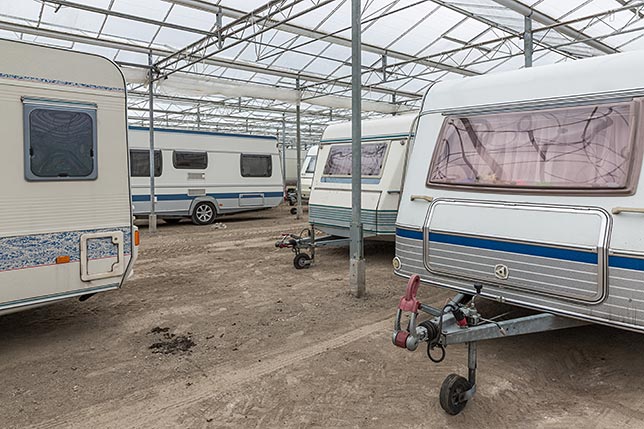
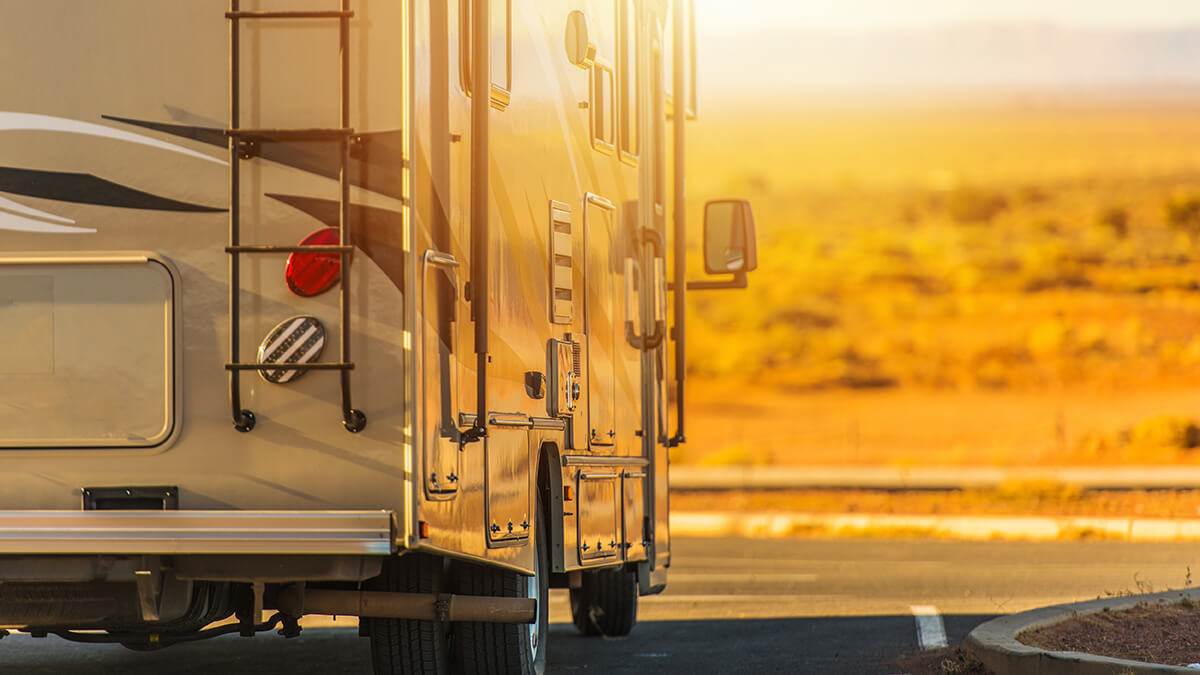
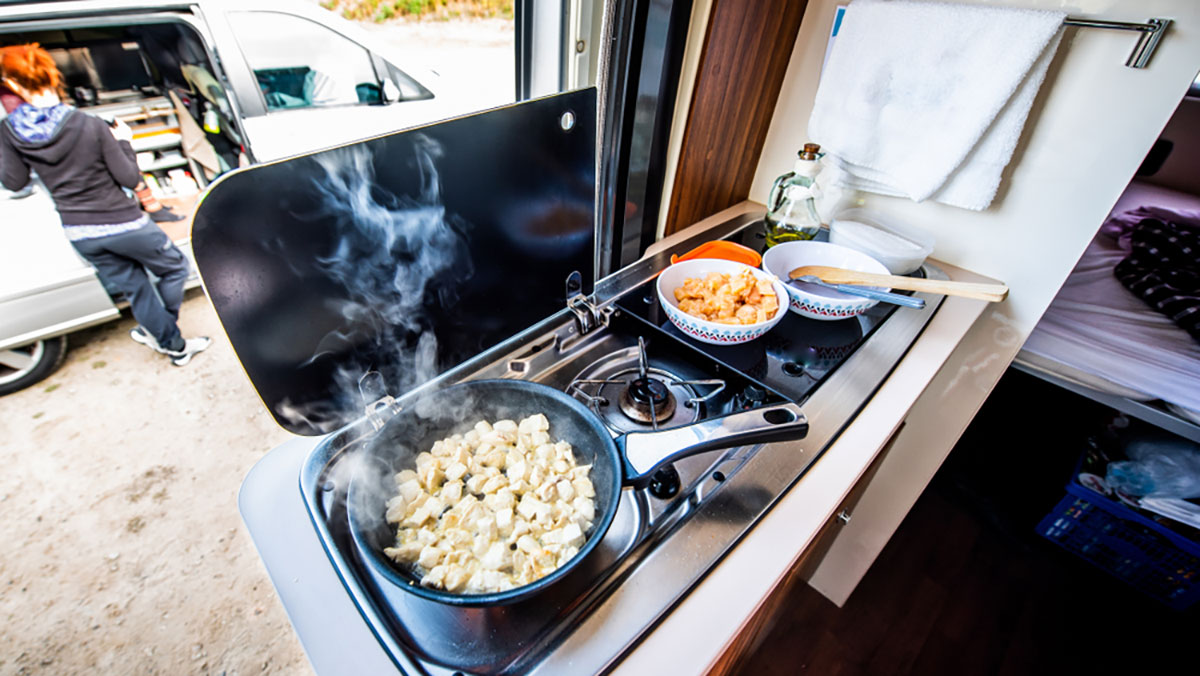
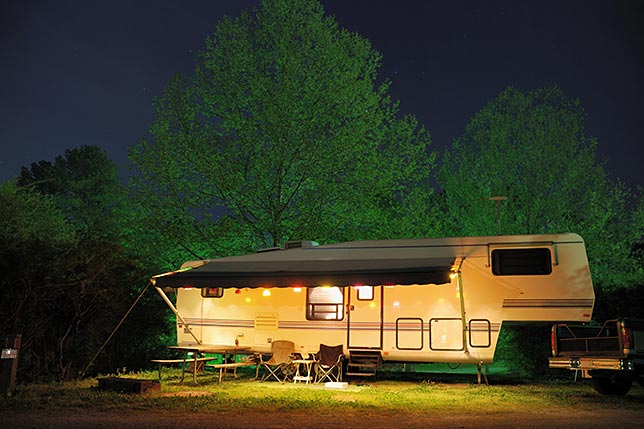
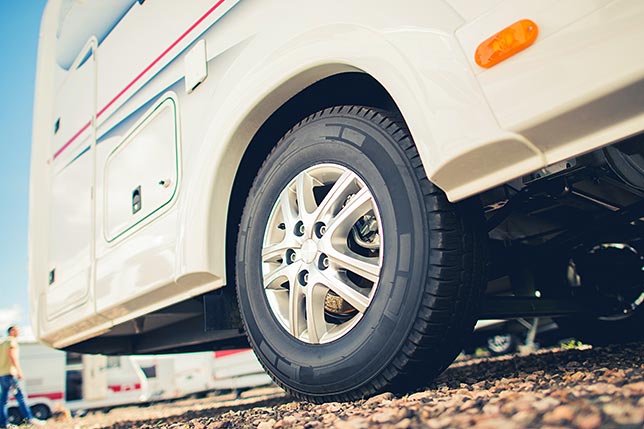
 RSS Feed
RSS Feed